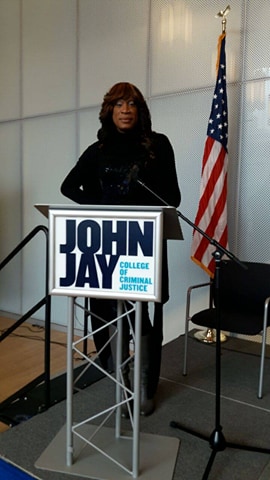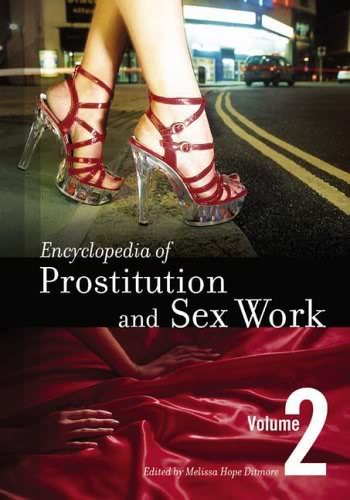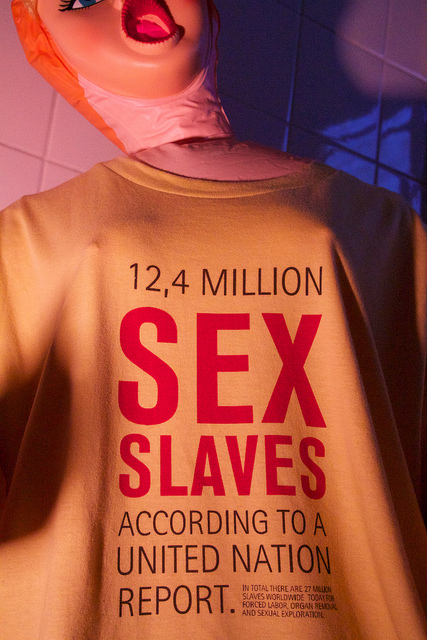Black Trans Sex Worker Leaders Reflect On December 17th

For this International Day To End Violence Against Sex Workers, Tits and Sass asked two Black trans sex worker leaders what the sex workers’ rights movement should be doing in the face of the epidemic of violence against sex working trans women of color.
Ceyenne Doroshow is an activist role model in the trans sex worker community. She has been mentored by Miss Major and the late artist and advocate Mother Flawless Sabrina considered her a daughter. She’s worked with Red Umbrella Project and appeared in the documentary Red Umbrella Diaries, and has written a cookbook/memoir. She now works for the organization she founded, GLITS (Gays and Lesbians In Transgender Society), helping trans women seeking asylum, fleeing domestic violence, or being released from incarceration.
With so many deaths that have come over the years, the numbers that we’re counting doesn’t match the work, the jobs [available]. If you don’t want sex workers doing the work, sweetie, employ them! Employ them, have a solution!
In New York City, just a couple of weeks ago—I think last week—the police raided, ICE probably, raided a brothel. A young woman threw herself out of a window to evade probably going back to her country. Is this systematic? Is this what the government wants?
On trans sex workers of color getting the brunt of violence against sex workers
Because we basically are street-based, basically because we have no backing.
Even if you look at the stories of these deaths [of trans sex working women of color] in any newspaper article, especially Black trans women, they get misgendered. So even in their death, they’re robbed of dignity. Why, because they’re a sex worker?
And if you read half the reports from the reporters that report these stories, it kinda says that the reason why [they died] is because of their “lifestyle.” You don’t know what their lifestyle is other than sex work! They could have very ordinary lives. They could actually be working minimum wage jobs that don’t give them sustainable living.
On what individual sex working readers of Tits and Sass and sex workers’ rights organizations can do to help protect sex working trans women of color from violence:
Form a buddy system, form a buddy system and a plan for girls not go out there by theirselves—that way, there is a system of reporting. So we can take care of ourselves as a community. We are a community that deserves dignity and protection.
We need to be a part of the decrim laws! We need to be a part of making sure that these people that murder people are caught and prosecuted—the same way they would do us for sex work!
We need to be a part of making sure that these people that murder people are caught and prosecuted.
On the sex workers’ rights community talking about sex working trans women of color when they die but not valuing trans sex working women of color while they’re alive:
That’s often, that’s often, that’s often [what happens]. Value the lives of the people who are living, then you’ll have less lives to value when they’re dead. Don’t wait until they die to do a December 17th—be a part of the process.
So, forming alliance to protect each other! It’s easy for a cisgender sex work [activist] agency to say, “Oh, well, we give money to trans women”, but you’re not a part of the process where you’re helping create a sustainable safe life for them. [Saying that is] sort of like, “I did my quota,” “well, I gave [to[ them”—instead, find out who we are! That’s often the case, where people are willing to say, “oh, we be putting out five percent,” and they’re not a part of “oh, we saved a life,” or “we actually helped this young woman, who was homeless, who’s on the street, who’s being attacked or beat up because she’s homeless and on the street”—be a part of the advocacy, be a part of trying to solve the problem!
Today we don’t have adequate places for trans sex workers to live, to reside. And this is on a global level. It’s not just here, it’s everywhere. And in some countries, they’d just rather kill them and say it’s ok. The girls that I’ve gotten over from Africa and from other countries [in other regions] have basically escaped by the hair of their teeth from being murdered.

Ava Talley is a writing enthusiast, sex worker, operations director for the New York Transgender Advocacy Group, and PrEP outreach worker for the National Black Leadership Coalition on AIDS. She currently resides in New York City.
The sex workers’ rights movement needs to be more visible to TWOC in the trade.
Direct outreach is needed because, all too often, I find that TWOC are not aware of the work the sex workers’ rights movement is doing, even if on their behalf. Most TWOC are first introduced [to activism] through transgender advocacy efforts, which stress “real” work over “sex” work. TWOC often have the perception that they cannot work due to blatant employment discrimination. So, many are survivalists and don’t recognize sex work as an empowering choice. That is often the divide.
I feel that trans community leaders are often implicit in furthering the shame and stigma attached to sex work because they have internalized shame.
It starts with [educating] transgender community leaders on the sex work is work narrative. I feel that trans community leaders are often implicit in furthering the shame and stigma attached to sex work because they have internalized shame. I remember a trans community leader offering me a job with an organization she was about to launch and [she] said [to me], “You don’t have to do sex work anymore.” I was like, “Thanks, but I am fine. I’d be happy to work with you but I don’t need saving.” Then later, she turns around and asks me about online sex work and ways she could brand to reach a higher level of clientele…and she isn’t the only [one]. So many trans community leaders won’t admit to being sex workers. Even though we all know advocacy often equals ramen. Why?
 Dr. Melissa Ditmore is one of the sex workers’ rights movement’s most cherished academics. For twelve years, she has worked as a freelance research consultant, with an impressive list of clients that includes AIDS Fonds Netherland, UNAIDS, The Sex Workers’ Rights Project at the Urban Justice Center, and The Global Network of Sex Work Projects (NSWP). Her work has focused not only on sex workers’ rights, but also those of similarly marginalized groups like migrant workers and drug users. She edited the groundbreaking anthology
Dr. Melissa Ditmore is one of the sex workers’ rights movement’s most cherished academics. For twelve years, she has worked as a freelance research consultant, with an impressive list of clients that includes AIDS Fonds Netherland, UNAIDS, The Sex Workers’ Rights Project at the Urban Justice Center, and The Global Network of Sex Work Projects (NSWP). Her work has focused not only on sex workers’ rights, but also those of similarly marginalized groups like migrant workers and drug users. She edited the groundbreaking anthology 
